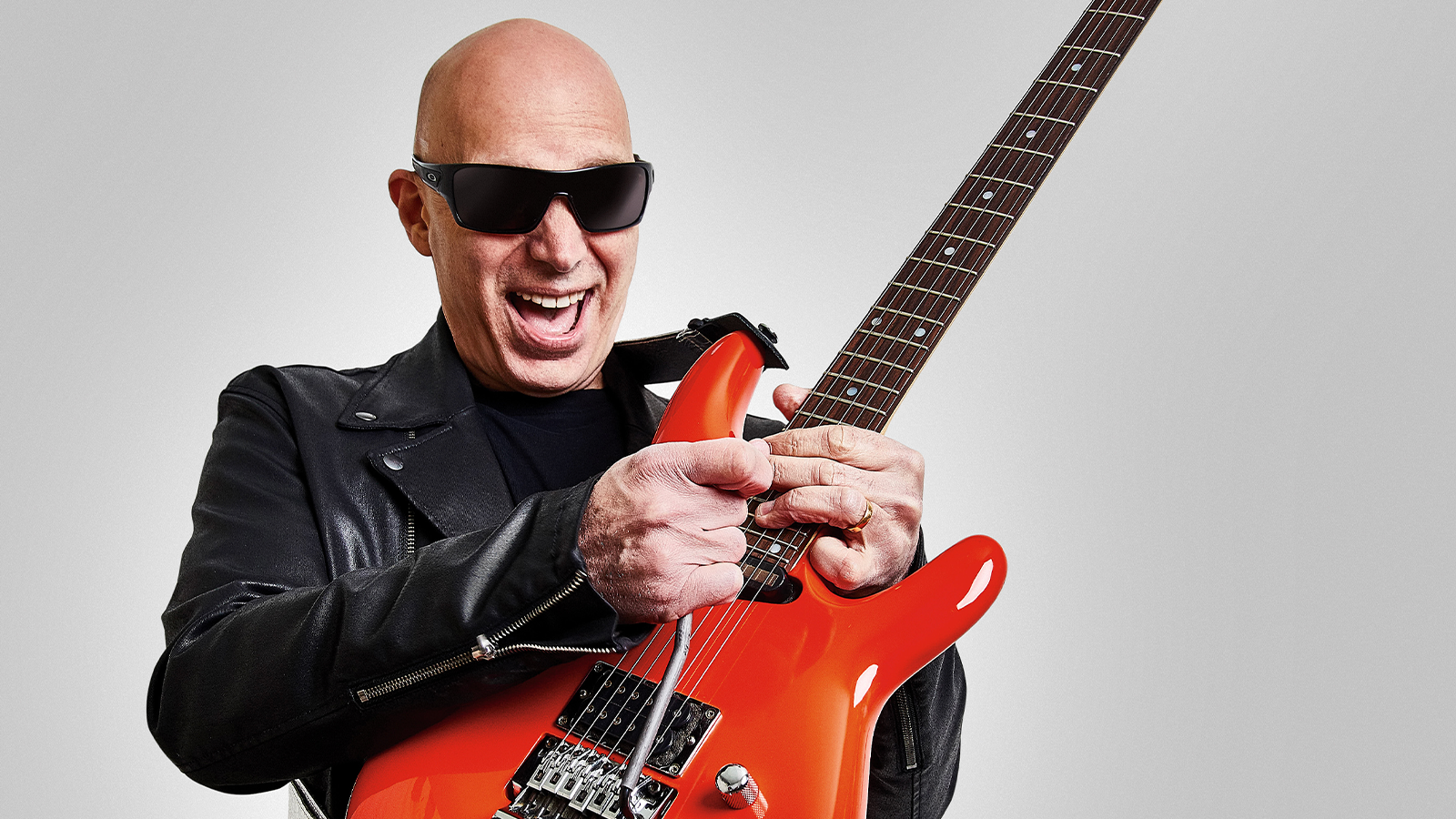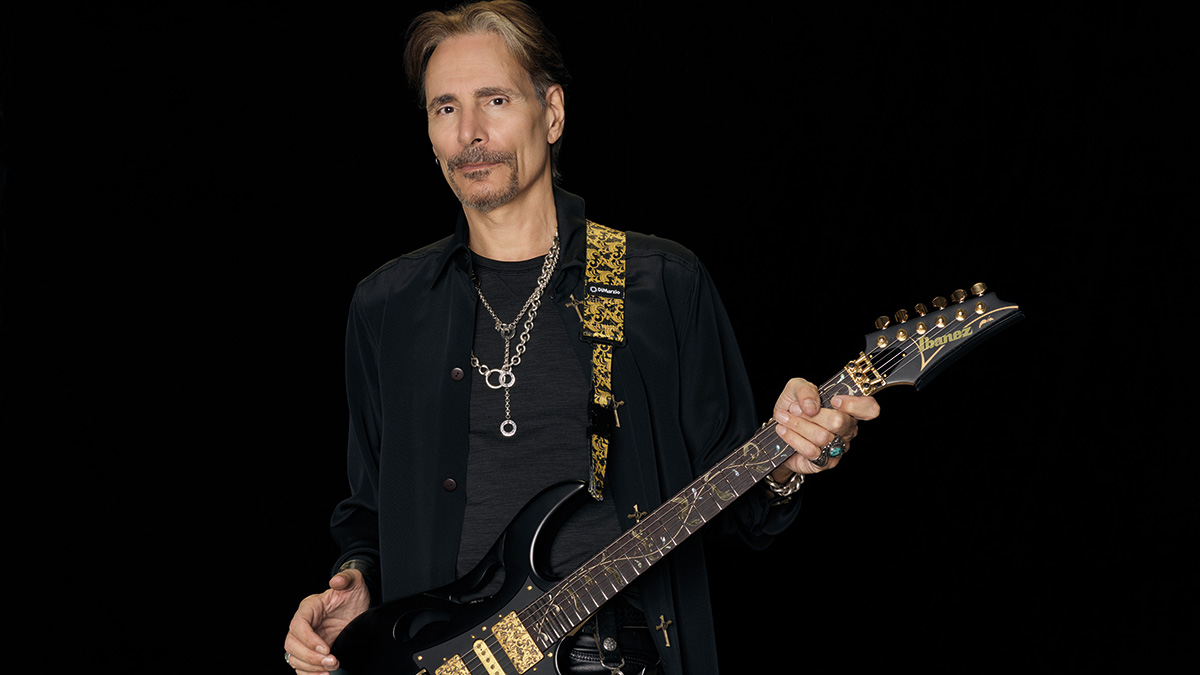“I think it's fairly impossible to be a guitarist without loving Steve Vai”: Nili Brosh names 10 guitarists who shaped her sound
The Ibanez-toting instrumental virtuoso shares her thoughts on “one of the best improvisers in the history of the instrument”, why Eddie Van Halen's rhythm playing is underrated and the shredder who “brought a new sound to the Shrapnel era”

There are a ton of guitarists who keep busy. It's par for the course, really. But busyness doesn't always equate to creativity, and even if it does, creativity isn't always memorable. At least, not in the way that Nili Brosh's licks are.
Despite dividing her time between Cirque du Soleil and Danny Elfman's band, the Ibanez endorsee unleashed two new tracks in the spring of '23, Song for Hope and Lavender Mountains.
It goes without saying that the guitar heroics heard across the tracks are first-rate. But digging into the meat of Brosh's latest cuts, you can hear another immense jump from a compositional standpoint.
"Both songs came about over the pandemic," recalls Brosh of the singles. "I actually wrote them around April or May of 2020, right when the pandemic was kicking off, which surprised me."
"I loved the idea that I wrote these tracks filled with uplifting hope in a time where a lot of dark stuff was happening. But there's also some irony in that. So, as I put the music together, that irony spawned the vibe musically. So, they turned out to be songs I wasn't expecting. Timing is everything. It took me some time to come full circle and finish these tracks. I'm okay with that."
The quality of the tracks begs the question: is Brosh working on her long-awaited follow-up to her 2019 record, Spectrum?
"These songs are part of a bigger statement," Brosh reveals. "I'll try and release singles in sequence with the record I have been working on this whole time."
Get The Pick Newsletter
All the latest guitar news, interviews, lessons, reviews, deals and more, direct to your inbox!
"It's taking me some time because of all my gigs," she continues. "I always want more time to work on it, but finding the time is hard. That's why you're getting the songs as singles for now; I don't want everybody to wait for the whole thing to hear some new music. But a new record is coming."
New music aside, it goes without saying that Brosh has a background that's as eclectic as they come. Be it blues, metal, glam, or classic rock, the Israeli-American shredder happily plays it all in en masse.
"What keeps me inspired as a guitarist is that I love music," Brosh enthuses. "I'm always searching for the next great piece of music that will hopefully make me feel something. And that's a huge part of what keeps me wanting to do this, you know? I keep at it for that reason, along with my love for music. It sounds simple, but a love for music and playing the guitar is probably as good a reason as any for wanting to do this."
What follows is a tidy collection of guitarists that have shaped Nili Brosh. More akin to a chameleon than a run-of-the-mill chord strummer, it's unsurprising that her list scours the depths of her musical soul.
1. Nuno Bettencourt
"Nuno was my first love on the guitar. His playing is unreal, and the sounds he made – especially on the album Pornograffitti – were so new and foreign to me as a kid. It was the first time I'd heard that kind of playing. I've always loved the funky metal style that he essentially coined.
"But beyond his incredible chops, his playing shaped how I hear the guitar because he was such an early influence on me. I'll write a certain riff or play a certain kind of vibrato now, and it'll be completely obvious to me where I got it from [laughs]. Many of the riffs off of Extreme's first two albums will probably forever sound like my childhood to me; I have such a strong emotional bond with that material."
2. Andy Timmons
"Andy is a big one for me because he was essentially my introduction to instrumental guitar. He showed me that you don't need words to write memorable hooks, and that hit me very hard in my pre-teen years. I had gone on to learn as much of his music by ear as I could throughout high school, and it was a huge education on the instrumental art of guitar and music, in general.
"Andy's versatility is another thing that very much stuck with me. His vast control of playing and writing in different styles motivated me to try and achieve that in my own way."
3. Guthrie Govan

"I didn't hear about Guthrie until early college, but the second I did, my mind was absolutely blown, much like everyone else's [laughs]. I remember being so taken with his mesh of styles, impossible improv, and perfect execution. The way he goes about things is both dazzling and baffling.
"I discovered his playing at a time when I very much needed a new source of inspiration, fresh, tasty lines, and a different approach. Suffice it to say that shook me out of my funk!"
4. Steve Lukather
"Steve Lukather has always been a big influence on me. His melodicism always made so much sense to me. Everything he plays feels like the most appropriate musical choice for the situation and is exactly what you'd want to hear.
"Throughout his legendary career, Luke has played every role that a guitarist possibly can, whether it be live or in the studio, writing or improv situation. And he always knows exactly how to compliment every musician he's playing with."
5. Steve Stevens
"We all love Steve Stevens for his work with Billy Idol, but I'm also a big fan of his solo stuff specifically. His songs are filled with great hooks and creative solos. Much like many of my other favorite players, Steve is extremely versatile, something that's strongly conveyed in his solo work.
"His 1999 Flamenco a Go-Go album is a fantastic example of that; it mixes flamenco with rock and techno, with interesting, almost surf rock-like guitar tones. It's hard to explain because it's such a uniquely fused album. It's definitely one of my all-time favorites and another reminder that many genres can live on one record in a cohesive way."
6. Greg Howe
"Another big one for me is Greg Howe. He's such an absolutely unique player. It's rare that someone sounds as much 'themselves' as Greg does. He has taken so many techniques, such as tapping, and approached them in a completely different way. In my opinion, combining those techniques with his interesting fusion chord changes and arrangements brought a new sound to the Shrapnel era.
"His playing has always been a mystery to me on a lot of levels, and I know I'm not alone in that. I feel like I could spend the rest of my life trying to analyze the secrets of his playing!"
7. Joe Satriani

"Anything I say about Satch will likely sound extremely obvious, but it's impossible not to comment on the melodicism of one of the pioneers of instrumental guitar. For generations now, Joe Satriani's memorable hooks captivate listeners without a single word or lyric.
"In addition to his contributions to the art of guitar and techniques, as we play them today, I think the biggest gift he's given us is being the ambassador of the instrumental guitar as a genre. I can't imagine many players pursuing that artform without Satch showing it's possible."
8. Steve Vai

"I think it's fairly impossible to be a guitarist without loving Steve Vai. Speaking of innovation, we have so much to thank Vai for. Whether it's the guitar techniques themselves or his overall approach to life, it's very clear that Vai has always been 100 percent behind everything he's ever done. He's always exuded the utter confidence of 'I'll do it my way,' regardless of what anyone else thinks.
"In addition to his playing and writing always being so inspired, fresh, and signaturely him, I think his attitude about it is what always takes it to the next level for me. That absolutely confident choice of 'I'll always do what I want' is part of what serves the music so well, I believe."
9. Eddie Van Halen
"And speaking of exuding utter confidence, no list is complete without Eddie Van Halen. In my opinion, Eddie was one of the truest innovators of the instrument. He had the most unique voice and maintained absolute control over seemingly every musical choice. He was a master of playing exactly what needed to be played in every moment.
"I definitely agree with the many players who feel his rhythm playing was largely underrated, and I think there's so much more to his playing that's overlooked. The way Eddie structured – especially early – Van Halen songs were absolutely brilliant: he had to figure out how to both convey the song form clearly and fill the necessary space in a band that has one guitarist.
"Each fill he played around every riff sounds perfectly phrased, yet live at the same time. The line between improv and writing seems so blurry with him because his sense of phrasing was both intentional and spontaneous."
10. Jeff Beck
"It definitely feels cliche to say that Jeff Beck was a one-of-a-kind voice on the guitar, but how could I not say it? Jeff played his feelings in a way that made the guitar almost sound like an entirely different instrument. He had the same tools as anyone else and used them to speak like no-one else could. I certainly believe his finger tone and voice on the instrument will continue to baffle us no matter how long he'll have been gone.
"In my opinion, he was also one of the best improvisers in the history of the instrument, which, combined with his unique voice, was conveyed so clearly on whatever he was playing – whether it was his tunes or standards."
Andrew Daly is an iced-coffee-addicted, oddball Telecaster-playing, alfredo pasta-loving journalist from Long Island, NY, who, in addition to being a contributing writer for Guitar World, scribes for Bass Player, Guitar Player, Guitarist, and MusicRadar. Andrew has interviewed favorites like Ace Frehley, Johnny Marr, Vito Bratta, Bruce Kulick, Joe Perry, Brad Whitford, Tom Morello, Rich Robinson, and Paul Stanley, while his all-time favorite (rhythm player), Keith Richards, continues to elude him.
“I was in a frenzy about it being trapped and burnt up. I knew I'd never be able to replace it”: After being pulled from the wreckage of a car crash, John Sykes ran back to his burning vehicle to save his beloved '76 Les Paul
“His songs are timeless, you can’t tell if they were written in the 1400s or now”: Michael Hurley, guitarist and singer/songwriter known as the ‘Godfather of freak folk,’ dies at 83










